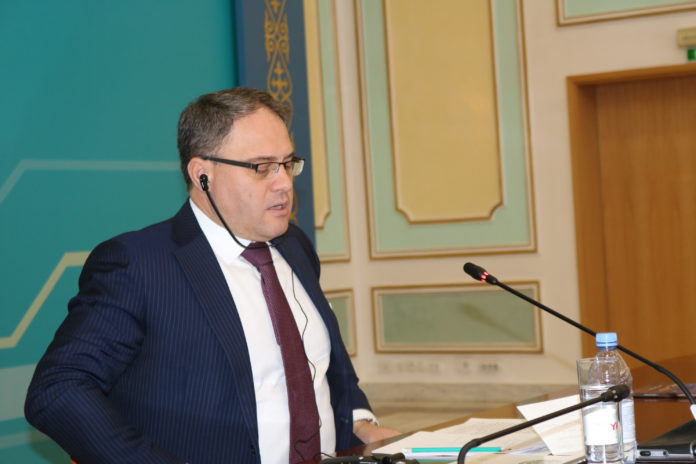ASTANA (Raza Syed) November 18 – Kazakhstan a significant developing central Asia’s state is witnessing Elections this month on 20 November. In this regard numerous foreign observer and journalists have been invited to observe the free and fair elections and to report their experiences that how much transparent elections they have witnessed.

In this regard a meeting was arranged in which Roman Vassilenko, Deputy Minister of Foreign Affairs of Kazakhstan formally welcomed all the foreign observers and hoped that they would do their professional work according to the demands of their profession and will report the honest and fair details of elections.
He said that we are pleased to see you all here today ahead of the presidential election on November 20, which is a historically significant event for our country. This election marks another milestone in what has been one of the most transformative periods in our country`s modern history. As you may know, incumbent President Kassym-JomartTokayev first announced a proposal to hold the early presidential election in his state-of-the-nation address on September 1, 2022. He explained that for the successful implementation of radical and comprehensive reforms aimed at building a Just and Fair Kazakhstan, a new mandate of trust of the people is required.
Kazakhstan experienced significant challenges in January, which were a catalyst for the transformation that our country has experienced. A key moment was the state-of-the-nation address by President Tokayev on March 16, in which our head of state proposed far-reaching political reforms, which required amendments to one third of the country`s Constitution. As a reflection of Kazakhstan`s democratic credentials, the amendments were put to a vote in a national referendum, which was held on 5 June. Earlier this month, President Tokayev publicly signed six important laws adopted following this referendum.
Key reforms that I must mention include the redistribution of powers from the president to parliament, establishment of the Constitutional Court from January next year, simplified procedures for registering political parties, increased participation of citizens in the governance of the state,as well as further protection of human rights. It is this swift and deep transformation that persuaded President Tokayev to call an early election. After all, it is important to give our citizens the opportunity to voice their opinion through a vote on the changes that have been taking place in our country and on the future direction of the nation. Yet given the transformative year and the implemented reforms that I just outlined, it is perhaps one of the most important in our nation`s modern history.
Six candidates are running in this election with varying political views. Over many years Kazakhstan has been taking concrete steps to ensure gender equality and to promote women`s role in business and politics. For example, the presidential election will be observed by ten international organizations (OSCE Office for Democratic Institutions and Human Rights, Executive Committee of the CIS, Interparliamentary Assembly of Member Nations of the CIS, Shanghai Cooperation Organization, Parliamentary Assembly of the Collective Security Treaty Organization, Organization of Islamic Cooperation, Organization of Turkic States, Parliamentary Assembly of Turkic States, CICA, International Turkic Academy), representatives of foreign countries and diplomatic corps, accredited in Kazakhstan. After all, the result of the election will only provide a clear and strong mandate for the elected head of state if the vote is a true reflection of the views of Kazakhstan`s citizens.
In his state-of-the-nation address on September 1, President Tokayev proposed to limit the presidential term to a single seven-year period without the right to re-election. He explained that limiting the presidential mandate to one term will ensure the maximum focus of the head of state on the strategic tasks of national development.






